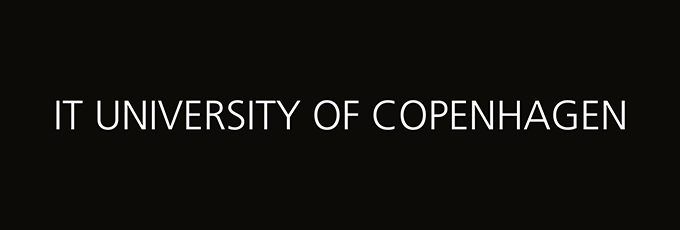Saskia Joanna Rauhut from Germany describes herself as more of a generalist than a specialist. While she enjoys programming and is passionate about games, her interests extend far beyond these fields. This broad curiosity left her uncertain about which career path to pursue — until she discovered the Master of Science (MSc) in Games programme at IT University of Copenhagen (ITU).
“What made me choose ITU’s games programme over those at other universities was that it offers courses that cover a wide range of aspects of games, such as programming and design, as well as classes with a more cultural studies angle,” she says. “Because of how varied the classes in the games programme are, I’ve had a chance to try out different things and get a much better feel for how my different abilities and interests synergise.”
Indeed, the pathway Rauhut chose merges the academic rigour of understanding games and playing with technical skills and knowledge to change the male-dominated industry. From video games to user experience design, e-sports to gamification, it helps learners create the future of play.
“As a woman who likes to programme but doesn’t conform to the stereotype of the highly specialised (male) programmer who spends all their time doing nothing but programming, I found that appealing,” she says.

The MSc in Games empowers all aspirants to turn their passion for games into successful careers. Source: IT University of Copenhagen
ITU believes in inclusivity and diversity, which is why this MSc takes every student’s play history seriously and avoids canons typically built on male-dominated subcultures and stereotypes of players. Here, you will not find any bias towards a specific nationality, cultural background, gender and sexuality, or age. Everyone respects each other equally and treats their peers as experts in their particular areas of interest rather than categorising them into social groups.
This encourages a tight-knit community of students and teachers where any issues, be it personally or in class, can be addressed immediately. “Another thing that’s helped is how close-knit the games programme is,” Rauhut says. “Especially in a creative field like games, it’s so important to get personal feedback and to be able to approach your teachers with questions or to bounce ideas.”
Both MSc in Games tracks unlock this level of guidance. The Technology track nurtures the additional skills necessary for implementing specific game technologies, with Game Programming and Foundations of Game AI being its mandatory courses. The Design track, on the other hand, explores the ins and outs of design, from its methods to its principles, through core courses like Programming for Designers.
Both tracks, however, offer mandatory courses in Games & Culture, Making Games, and Data-Driven Design and Development. They also offer electives that allow you to customise your curriculum to match your interests.
“For me personally, it was the courses that allowed us to experiment with weird ideas and formats,” Rauhut says. “Those really drive home the point that a game can come in many shapes and forms. This experimentation helped me flesh out my idea of what kinds of games I would like to create as a professional – and it’s okay if they aren’t what your stereotypical ‘gamer bro’ might prefer.”

Some of the programme’s alumnae return to teach as guest lecturers or participate in other events. Source: IT University of Copenhagen
Knowing that the games industry is a competitive environment for women, ITU has made many collaborations with key industry players to ensure its female graduates are recognised for their achievements and warmly welcomed into prolific game companies.
“There is a mentorship programme specifically for women in the Games programme,” shares Rauhut. “I participated in its first instalment last year and was paired with a mentor who I met up with regularly to talk through whatever I wished to discuss regarding my career plans. My mentor was, like me, a non-Danish woman, and she works in a leadership position in the games industry, so I learned a lot from her.”
Rauhut is definitely well on her way to following in her mentor’s footsteps. Outstanding outcomes are common for ITU’s MSc in Games graduates. Whichever track they choose — Technology or Design — they leave prepared for exciting roles: from game programmer, AI engineer, or data analyst on the Technology track to game designer, quality assurance manager, or producer on the Design track.
Follow the IT University of Copenhagen on Facebook, Instagram, LinkedIn, X, and YouTube













